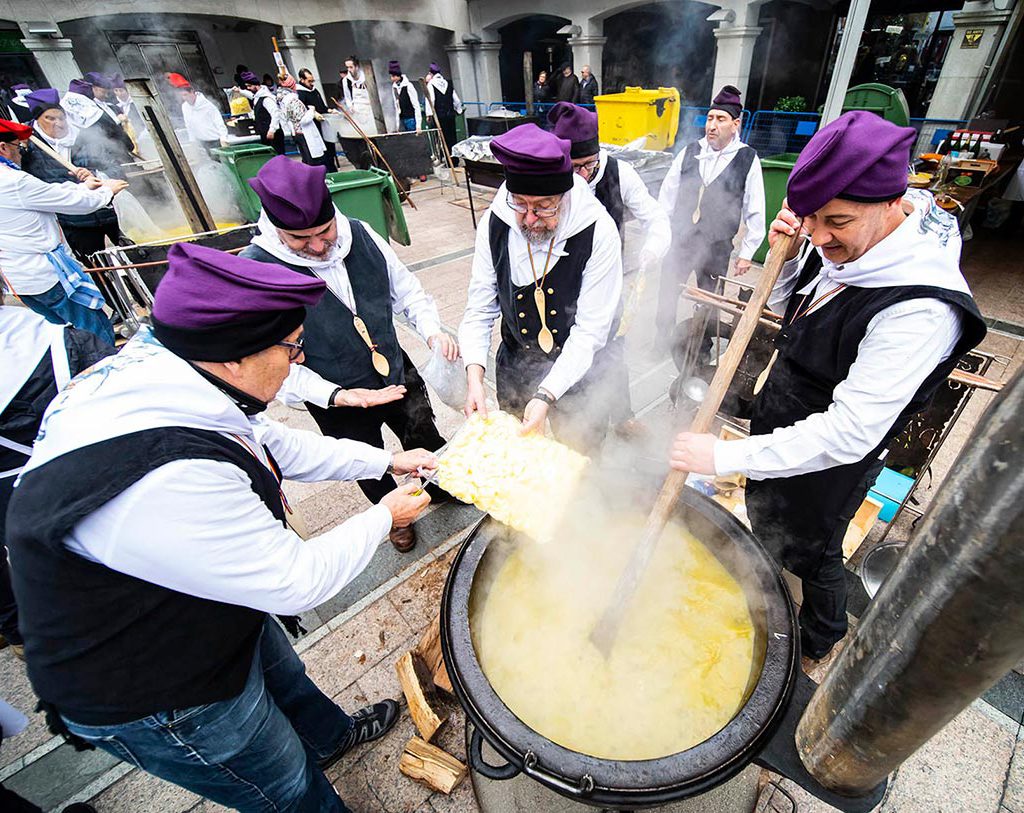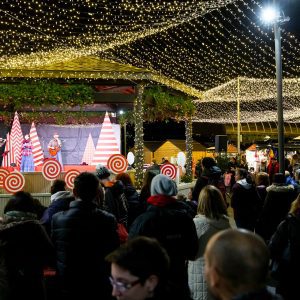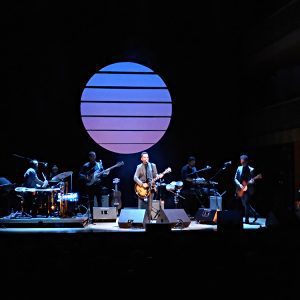Beyond the shops, hotels, restaurants, ski resorts and tourist attractions, winter in Andorra boasts an assorted calendar of holidays and traditions, including the delicious stew festivals known as the Escudelles de Sant Antoni and Escudelles de Sant Sebastià. Hence, during the last two weeks of January, Escudella stew festivals are held by the parishes of Canillo, Encamp, la Massana, Andorra la Vella and Escaldes-Engordany for Sant Antoni, around 15 January, and a week later in the parish of Sant Julià de Lòria, for Sant Sebastià.
This traditional fiesta recalls the meals made for the poorest people of the community and was recovered 50 years ago virtually everywhere in the country. This hearty dish cooked out in the streets since the early morning is a pleasure to eat on these freezing cold days of winter, even if you have to do so while standing in the street.
Also around the time of Sant Antoni, the parish of Escaldes-Engordany holds the Encants de Sant Antoni, a tradition dating back to the early 20th century consisting of a raffle of several lots made up of different meats. The proceeds from the ticket sales are then donated to a charitable cause.
Another important date on the winter calendar is Carnival, which is celebrated in nearly all the parishes. Andorra la Vella and Escaldes-Engordany celebrate this festival together and one of the oddest activities of all is what is known as the Robatori de les Olles, which translates to the “theft of the cooking pot”, a tradition originating in the early 20th century and recovered only recently. Initially, the young people would go inside of people’s houses and steal their cooking pots. While some would distract the members of the household with songs and conversation, the others would watch the housewives’ every move, to make off with their cooking pots and enjoy the contents.
Today, the towns only do a staging to give the children an idea of this tradition, and the houses have been replaced by restaurants in the historic centre of Andorra la Vella.
In Encamp, Carnival is celebrated for four days, during which time two important activities are the Judici dels Contrabandistes (roughly, the “Smugglers’ Trial”) and the Ball de l’Óssa (“Dance of the Bear”), which was declared Intangible Cultural Heritage of Andorra. It is probable that the latter began during the medieval period, though both of these festivities were recovered in 1950.
In both cases, tradition, music, criticism and young people take centre stage, as do the public botifarra sausage cookoffs, which are held here and in other places around the country. In fact, the consumption of meat before Lent gives the Carnival in Andorra its point of criticism and debauchery.



